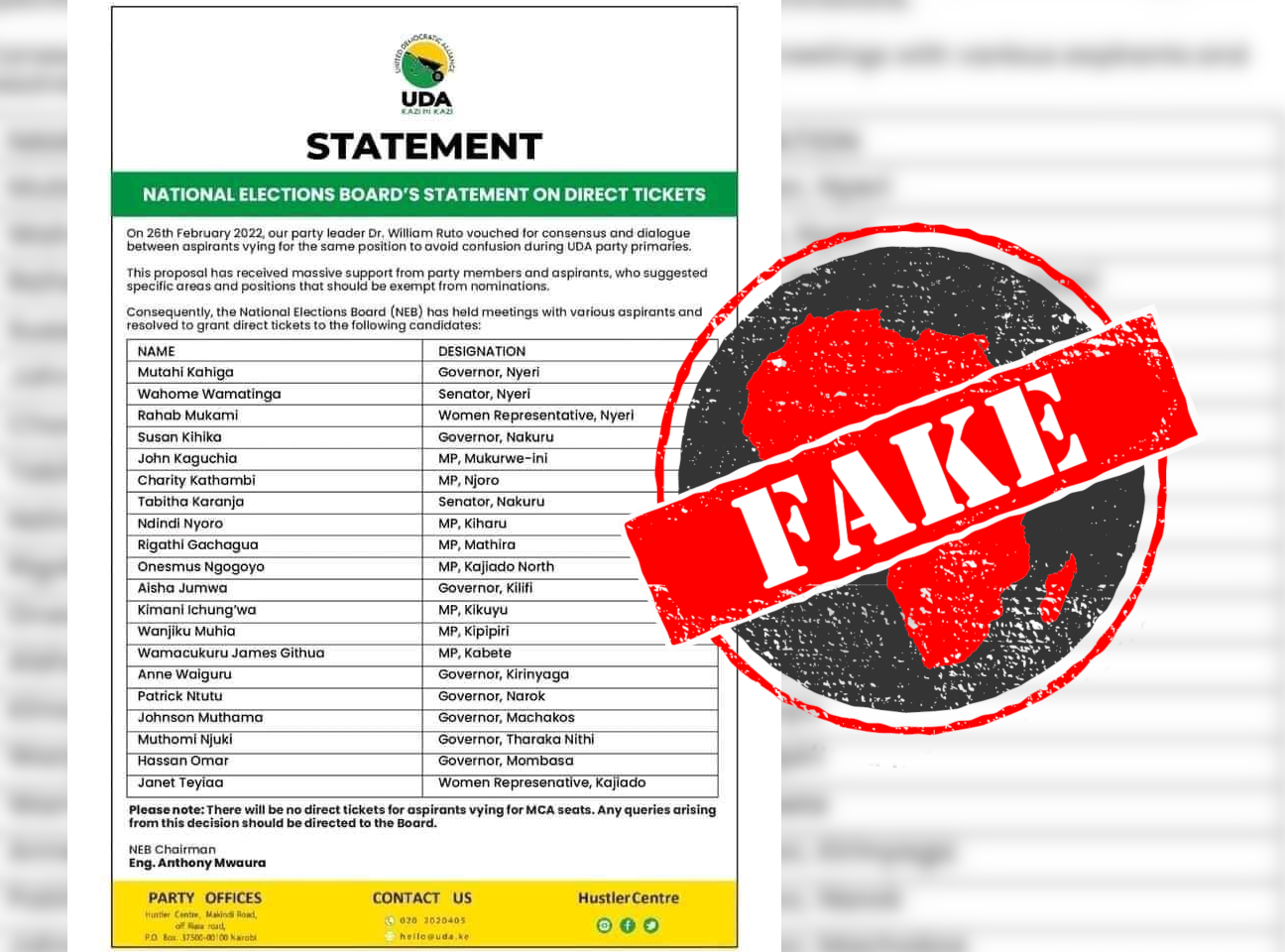A copy of a document posted online appears to show that Kenya’s United Democratic Alliance (UDA) has issued “direct tickets” to political hopefuls, ahead of the party primaries.
The document looks like a statement from the UDA, dated 26 February 2022. It is headed: “National Elections Board’s Statement on Direct Tickets.”
This board is responsible for organising the primaries where the party will select candidates for the country’s 9 August general elections. The primaries are scheduled for 14 April.
The document says that “party leader Dr. William Ruto vouched for consensus and dialogue between aspirants vying for the same position to avoid confusion during UDA party primaries” and “this proposal has received massive support from party members and aspirants, who suggested specific areas and positions that should be exempt from nominations”.
It then lists representatives allegedly granted “direct tickets”.
The document was shared here, here and here.
But has the UDA election board really released this statement?

Faked statement
Africa Check contacted UDA’s communications director Wanjohi Githae.
Githae dismissed the statement as “fake” in a text message.
The Kenya Broadcasting Corporation (KBC) reported that the board’s vice-chairperson Ummi Bashir assured UDA party members of a fair nomination process.
According to the Star newspaper, Bashir said direct tickets would only be issued in areas where there was only one party member vying for the nomination.
Republish our content for free
For publishers: what to do if your post is rated false
A fact-checker has rated your Facebook or Instagram post as “false”, “altered”, “partly false” or “missing context”. This could have serious consequences. What do you do?
Click on our guide for the steps you should follow.
Publishers guideAfrica Check teams up with Facebook
Africa Check is a partner in Meta's third-party fact-checking programme to help stop the spread of false information on social media.
The content we rate as “false” will be downgraded on Facebook and Instagram. This means fewer people will see it.
You can also help identify false information on Facebook. This guide explains how.





Add new comment